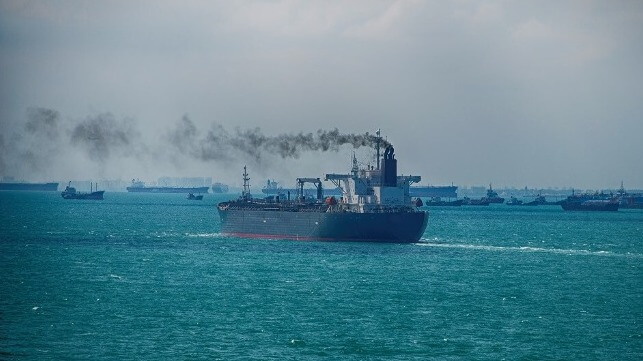ICS Proposes Carbon Charge to Subsidize Emissions Cuts

In a departure from the R&D-only framework of its previous carbon charge plan, the International Chamber of Shipping is back with a revised proposal for an IMO "fund-and-reward" program that would charge a fee on carbon and pay shipowners who reduce emissions.
The payment for shipowners would be based on CO2 emissions prevented, and it would be funded via a "mandatory flat rate contribution" from ships per tonne of CO2 emitted. ICS hopes that the system can be set up by 2024, assuming agreement at MEPC. The objective is to change the incentive structure enough that five percent of the global fleet's energy will come from alternative fuels by 2030.
“We must narrow the significant price gap of new, very expensive, alternative fuels to accelerate their production and take-up, so that we reach a take-off point by 2030," said ICS Secretary General Guy Platten in a statement. “This fund has the potential to go beyond the traditional reach of the IMO, boosting investment for the fuel production and bunkering infrastructure in ports worldwide that will be vital for our global industry to decarbonise completely.”
The dollar value of the mandatory flat rate contribution will be of great interest to stakeholders. ICS commissioned a study from Clarksons on the economic impact of its new proposal, and the results suggest that a $100 charge per tonne CO2 would not have a substantial negative effect on national economies.
However, ICS says that it would start with a "much lower" carbon charge until the first five-year review (2029). The dollar value would be reconsidered on a five-year basis going forward.

that matters most
Get the latest maritime news delivered to your inbox daily.
By comparison, the Republic of the Marshall Islands has called for a bunker tax of $100 per tonne of CO2, and Maersk boss Soren Skou has suggested $150. (Maersk has since parted ways with ICS' board over carbon policy.) Last year, Swiss commodities trader Trafigura estimated that a tax-and-subsidy scheme would have to charge up to a staggering $250-300 per tonne of CO2 for full effectiveness.
ICS' previous research fund proposal was not intended as a financial incentive system, and it would have levied a charge of roughly $0.70 per tonne of CO2 ($2 per tonne of fuel) to support R&D only.
